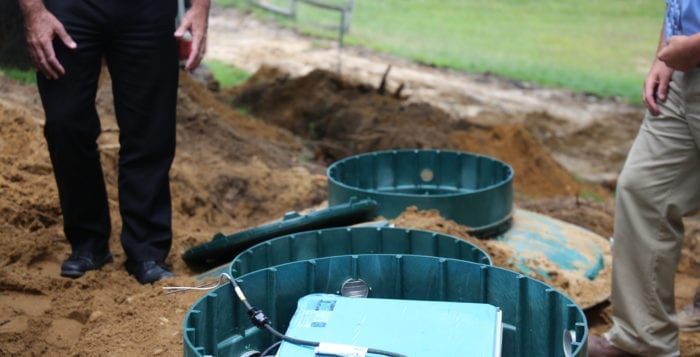U.S. Reps Promote Bipartisan Bill to Stop Taxation on Experimental Septics

Republican and Democratic congressmen from Long Island are promoting a bill that would cancel the taxable status placed on grants for prototype denitrifying septic systems in Suffolk County and offer relief to those who received those grants.
Both U.S. Rep. Lee Zeldin (R-NY1) and Tom Suozzi (D-NY3) are promoting legislation that would essentially reverse the U.S. Internal Revenue Service’s ruling that grants for the experimental septic systems were taxable, despite Suffolk County and other local officials saying there was precedent for such grants on home-based environmental devices being tax free.
“Cesspools and septic systems have been identified as the largest single cause of degraded water quality on Long Island,” Suozzi said in a statement. “This bill may not sound exciting, but it has a real impact on real people’s lives and pocketbooks.”
The IRS ruling came down in January of this year after Suffolk County Comptroller John Kennedy Jr. (R) asked the IRS for such a decision. The comptroller sent tax bills to homeowners who had taken up such grants in 2019, saying the county should have constructed the program to make sure that the feds would tax the contractors, not those who received the grants. County Executive Steve Bellone (D) said in a statement that “the notion that Suffolk County homeowners would be taxed for participating in a water quality program that will make their water cleaner simply defies all logic.”
Zeldin said they have to protect taxpayers.
“This program’s goals are laudable, but we must ensure people can actually use the program to achieve those goals. While all levels of government work to find a solution, due to the urgency of this situation, we are running the gamut on every option, including this legislation to provide immediate relief,” he said in a release.
The bill would also retroactively allow people who received the grants to amend their 2019 tax returns for grants received in the same year.
The legislation is expected to be included within a larger congressional infrastructure package that will be voted on within the next few weeks.






